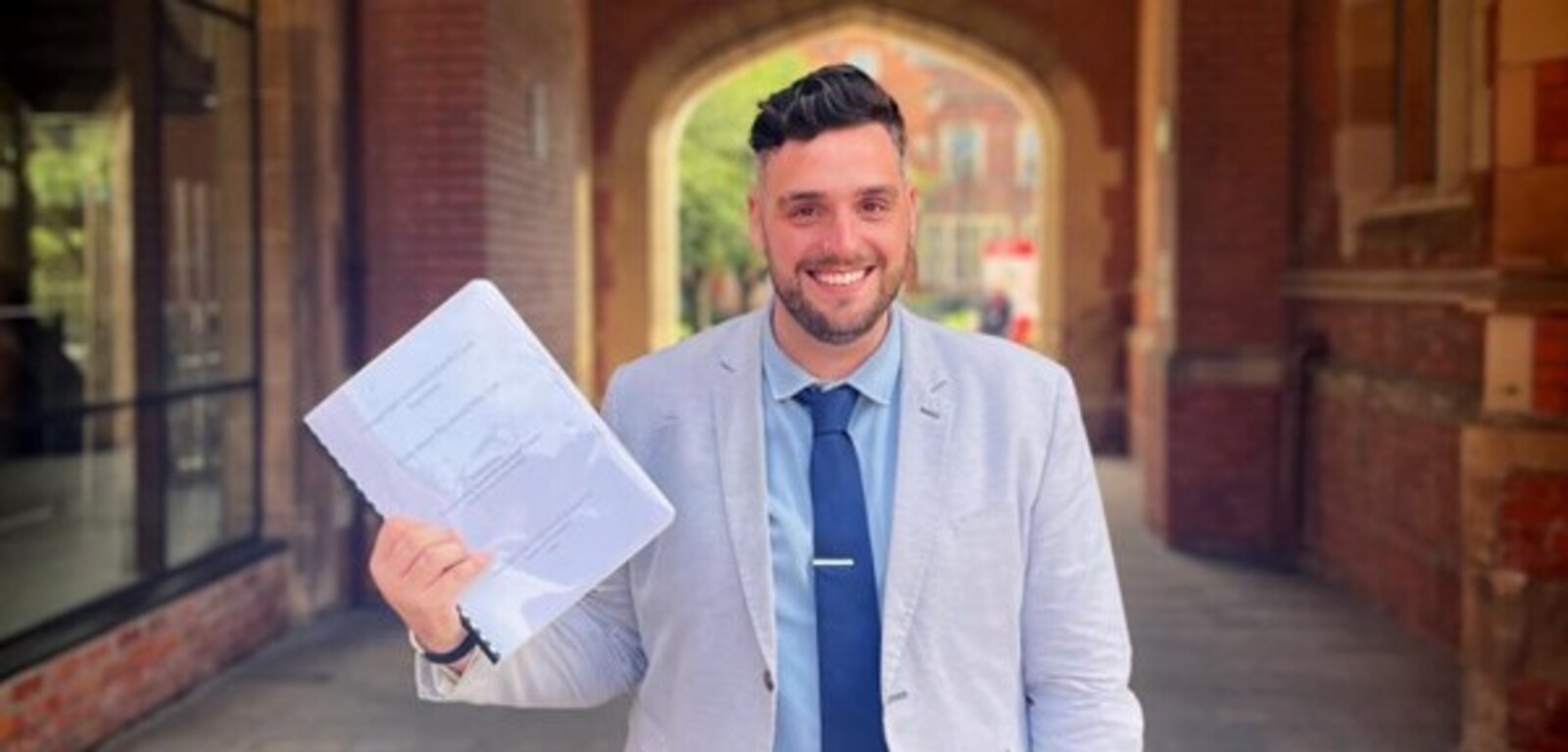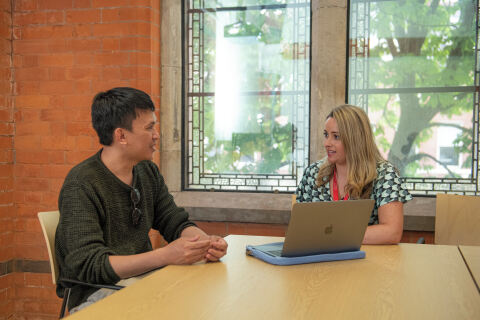The PhD Application Process at Queen’s
Thinking of pursuing postgrad research? PhD student Philip gives some words of wisdom regarding the PhD application process at Queen's, including how to find the right supervisor for your research topic, and funding options available to students.

The run up to Christmas is often a busy time, but even more so if you are a postgraduate student who may also be interested in PhD research. This could be you in 2023! During semester one of the 2017-2018 academic year, I was juggling an LLM in Criminology and Criminal Justice and a goal of securing a funded PhD programme for October 2018. This involved writing my PhD proposal alongside my hefty LLM assignments. Drawing from my own experience, this blog will impart some advice on how to navigate this tricky and, at times, rather intense period.
Considerations before applying
I had been interested in PhD study since my days as an undergraduate. I came into my LLM in Criminology with an idea of the research I would like to do at PhD level. Therefore, when it came to choosing modules and picking that all important 20,000-word dissertation topic, I was careful to consider my long-term goals and how this programme of study could complement and inform my PhD application. This also included the all-important choice of potential PhD supervisors.
Prior to this, however, you need to consider if a PhD is really for you and if it is necessary for your career goals. Three years is a long time and a lot can happen! Mine took four and a half years after I grappled with the pandemic and many familial issues; and it is important to note I was only funded for three and a half of those years. You need to consider if you can self-fund the final stretch of the PhD if you do not finish it inside the three funded years.
Find out how to get onto a PhD programme at Queen's
Finding a supervisor
In October 2017, I made my approach to my prospective primary supervisor, Professor Anna Bryson who had taught on multiple modules I was studying during my LLM. I had enjoyed Professor Bryson’s classes, felt that we had already developed a rapport and could envisage us working together for the duration of an eventual PhD programme. This is critical! Nothing can derail a PhD programme faster than an adverse supervisory experience and, unfortunately, it does happen.
Therefore, it is advisable to research your prospective supervisor, consider if their work and publications align with your values and what you wish to achieve with your PhD research. In my case, I was lucky in that Professor Bryson was already teaching me but it may be that you need to approach a member of academic staff who you have had no prior engagement with for an initial meeting.

Make sure that your supervisor is the perfect fit for your research topic
The PhD proposal
At our initial meeting, I spoke to Professor Bryson at length regarding my idea and, together, we developed the research proposal to fulfil both my interests and Professor Bryson’s expertise in the relevant theories and research methodologies. It was at Professor Bryson’s suggestion that we recruited Professor Kathryn McNeilly to assume the role of secondary supervisor, given her additional theoretical expertise that would be sure to enhance the quality of the thesis.
Indeed, Professor McNeilly would become my LLM dissertation supervisor which we developed in a way that there would be minor overlaps with my potential PhD programme and as a way to introduce me to the complex theories I would eventually be grappling with!
Speak to your supervisor in length to establish a clear research proposal
Familiarise yourself with the application process
Following an approach to a prospective supervisor, it is important to familiarise yourself with your School’s timeline for PhD application and proposal requirements and dates for submission. For the School of Law, I was eligible to apply for both Northern Bridge (AHRC) and NINE funding (ESRC). There are, of course, many other research councils who provide discipline specific funding and your school and potential supervisors should be able to signpost and advise on relevant opportunities.
Your school may also advertise information sessions that usually happen in late October or November which can provide support and information on the application process. I attended the Northern Bridge session for students across Arts, Humanities and Social Sciences which was held in the November.
It should be noted that Schools often discourage students from applying for multiple research councils with the same proposal. I was, therefore, tasked with deciding whether Northern Bridge or NINE would be the right fit for my research. One of the deciding factors for me was the fact that NINE had an additional 6-month research methods training programme which, given my two masters, I did not feel was the right fit for me.
"It is advisable to research your prospective supervisor, consider if their work and publications align with your values and what you wish to achieve with your PhD research."
The all-important application
So, let’s consider that all-important application. You may be asked for an expression of interest to the school or to submit a PhD proposal and application following the guidelines of the school in January time. It is then the school that nominates your proposal for funding. It is important to mark yourself as wishing to avail of any and all funding, as will become clear. The application process required me to have a few variations of proposals. There was an initial proposal of around 2500-3000 words that was developed, drafted and signed off by my prospective supervisors.
Subsequently, I found out I had a place on the programme and was shortlisted by the School of Law to be put forward for Northern Bridge funding. This required rewriting my proposal and condensing it to 750 words and following the submission guidelines of the AHRC at that time. This was completed around February-March time.

It is important to mark yourself as wishing to avail of any and all funding available
Don’t forget to mention funding
It is at this point that it is important to touch on why it’s important that you mark on your application that you wish to avail of any funding opportunities available. After all the work put into my application, I was waitlisted by Northern Bridge. It was very difficult not to be disheartened at the time but do not let it defeat you! The School felt that the application had merit and I had already received an offer of a place, and, in the end, I received a Department for the Economy studentship which covered my PhD fees and stipend for the full 3 years. Flash forward to August 2023 and I passed my PhD with no corrections and the waitlisting by a research council all feels like a distant memory!
All in all, the PhD application process is a lengthy, albeit rewarding one and it’s best to hit the ground running, researching prospective supervisors and funders. Good luck!
Find out more
Postgraduate Study: Take Your Next Step
Also from Philip: Managing your Summer Experience Whilst Completing Postgraduate Study
Philip RiversPhD in Law| Research Student | Northern IrelandMy PhD thesis has the working title of: "Transgender Activism in Conflict and Transition". The research project aims to conduct theoretically-informed, empirical, socio-legal research on the transgender social movement in Northern Ireland (NI), focusing specifically on activism, community and transition. My other research interests include transitional justice, crime and the media, penal policy and corporate governance. |
 |